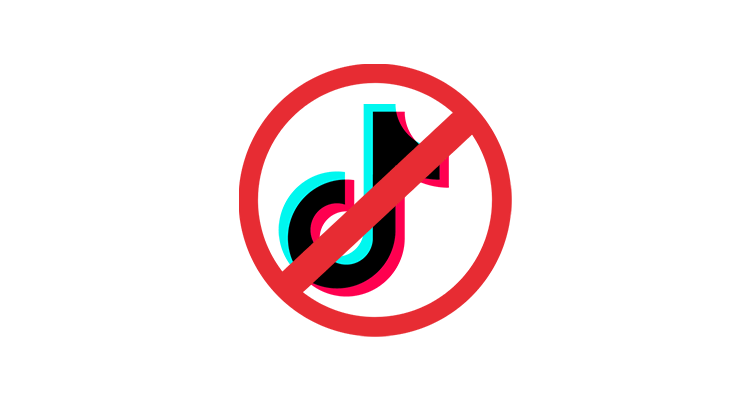Opinion: Get off TikTok
February 15, 2020
The popular video streaming app, TikTok, has infiltrated the young adult society in an addictive, invasive, and regressive way.
My problem with Tiktok has nothing to do with the content created and shared; that is an artistic expression, which in itself is a great aspect of the app. People should be able to post what they want people to see. My problem lies with the addicting algorithm, the potential data breaching, and the celebrity status that we give popular content creators.
I see TikTok everywhere and I’m sure you do too. Advertisements constantly pop up on my phone on a variety of other apps and websites. If you’re not already on TikTok, they remind you constantly until you hit the download button. Now, of course, TikTok wants to make money, so of course, they are going to advertise; they have every right to do so. But, they have all this power and money helping them work their way into our everyday lives, thanks to all the clout and coverage TikTok gets through their army of users.
According to Business Insider, TikTok boasts over 800 million active users, rivaling Instagram, YouTube, and Facebook.
But why is it so bad for us?
TikTok is utterly addicting. The feed is designed to show you posts that you have an interest in; at first, it floods you a variety of posts, which by liking or commenting on indicates your interests, then it will show you more of that kind of content. Most of the content produced on TikTok is short and fast-paced, which is what attracts the younger generations.
“60% of TikTok users are between the ages of 16-24.” Says Wallaroommedia.
Open the app and you have an endless stream of humorous content, which is great is small doses, but people open TikTok as much as 8 times a day or an average of 52 minutes a day according to recent data collected by TikTok.
If you have TikTok downloaded and actively use it, see for yourself just how much time you spend on it by opening the screen time recap in your phone settings.
With the worldwide audience that TikTok has, do you have any idea who actually owns the app?
If you don’t, its the Chinese company ByteDance. In a recent article published by the New York Times, TikTok went under a national security review because of allegations that the app was sending user data to the Chinese government. TikTok, of course, denied these allegations but I’ll let this example speak for itself.
During a makeup tutorial, TikTok user, Feroza Aziz, 17, talked about China’s treatment of Uighurs (Chinese Muslims) and how they are being put into concentration camps. TikTok then had her account suspended and took the video down. Hmm, I wonder why?
TikTok claimed to not censor that kind of content but when she created an alternative account and posted similar content, the new account was suspended too. Many have deemed this is because the Chinese government bans content they find “unacceptable.”
Furthermore, what kind of content goes viral?
TikTok amplifies people who see themselves as “social media influencers.” Most of these people don’t actually have anything meaningful to contribute to society. Take for example the TikTok “celebrity” Charlie D’Amelio who drew a crowd of 400 at a meet and greet in NYC.
Why did she provoke such a huge turnout?
Well, for one, all she does is post videos of herself making dancing videos. That alone got her account to up to 6.2 million followers (and climbing). Now I want to make this clear, by no means is she at fault for having such a large following. It’s the TikTok algorithm that promotes her content to user masses 6.2 million who in turn follow her and give her celebrity status instead of people who contribute to society.
Why aren’t young authors, scientists, environmentalists, and innovators generating the same kind of crowd? If Greta Thunberg can amass so much fame, others like her can too. She has achieved celebrity status for her meaningful work creating awareness of and campaigning for climate change. Is it such a leap to hope we can shine a light on more people like her, who are actively making the world a better place rather than dancing around their living rooms?
And what about Irsa Hirsi, who at 16 years old helped co-found the US Youth Climate Strike; or Autumn Peltier, who at 14 “was fighting for water conservation and indigenous water rights” said the New York Times? (More on those two individuals).
Where is the clout for these incredible people?
TikTok is driving our society in the wrong direction. It’s taking our focus away from what’s important; what’s really going on the world. We need to shift our focus from dancing high school dropouts to those who are trying to ensure that we can all be around dancing in the future.




Robin • Feb 17, 2020 at 9:30 pm
Great written article Jack. Completely agree thank you